



“… But in this world, nothing can be said to be certain, except death and taxes.” – Benjamin Franklin.
The tax-free world would be something of a fairy-tale with unicorns, flying piggies, and probably no death, if we were to twist Benjamin Franklin’s words.
Any industry, however big or small it is, is subject to taxes; and alas, gambling is not an exception. The main source of gambling revenue in countries is their betting and gaming establishments; but some nations do also impose duties on players. In this article, we’re going to show you the most prominent gambling countries, along with the taxes they impose on punters and gaming companies.
Winners: 0
Land-based casinos: 5-15% of the GGR
Lotteries: 30% of sales
The might of the gambling industry in Singapore is divided between the world famous Marina Bay Sands Casino and the Resorts World Sentosa, the casino-resorts that are also deemed to be the main suppliers of gambling tax in the country. However, the duty they pay is fairly low, and amounts to 5% of the GGR for premium players with a deposit account of $100,000 or 15% of the GGR for all other players.
Players: 0
Online Casinos: 20% tax of revenue
Land-based Casinos: $58,350 (BGN100,000) licensing fee + monthly fee per machine
Sports betting, Lotteries, Bingo, and Keno: 15%
Bulgaria is indulgent to gambling operators, charging them fairly low taxes. Land-based casinos are obliged by law to pay levies on each gambling machine as well as a licensing fee, while online gambling venues are taxed at a rate of 20% on revenue.
Operators that run such forms of gambling establishments as Dog and Horse racing, Bingo, Keno, sports betting, and lotteries are subject to a 15% tax on the value of bets.
Players: 0
Online Casinos: 25% of the GGR
Land-based sports betting: 20% of the GGR
Online sports betting: 24% of the GGR
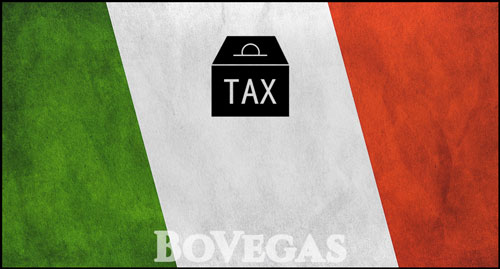
The land-based and online sports tax rate will now go up by two percent; from 18% to 20% and from 22% to 24% respectively.
Casino winners: 0
Lottery winners: 20%
Land-based casinos: 4.5-40% of GGR
Online casinos: at the moment of writing 15-30% of GGR
Land-based bingo: 25% of GGR
Online betting on sports: at the moment of writing 8-16% of turnover
All online sports betting operators in Portugal have been in a lather lately, as the government recently introduced a new tax rate of 25%. Compared to the previous 8-16%, the new tax rate may cause an exodus of operators from the market.
Provided the tax-related legislation comes into force, online casinos will also be subject to the 25% duty on the gross gaming revenue.
As for the lottery winners, they have to cut as much as 20% of their gaming winnings, whereas casino players are exempt from taxes.
Players: 0
Casinos: 40% of GGR
This small city on the south-eastern coast of China, Macau, is the only gambling destination available for the Chinese and some nearby overseas countries. For this reason or another, the tax rate imposed on casinos is fairly high, reaching as high as 40% of the gross gaming revenue. These levies include a 35% tax on GGR, a 1.6% contribution to the Macao Foundation, and a 1.4 – 2.4% contribution for social and economic purposes.
Players: 0
Land-based Casinos: 15-50% of the revenue, depending on the GGY of the premises
Online Casinos: 21% of the revenue (from October 1, 2019); now: 15% of the profit
Lotteries: 12% of the turnover
Bingo: 10% of the profit
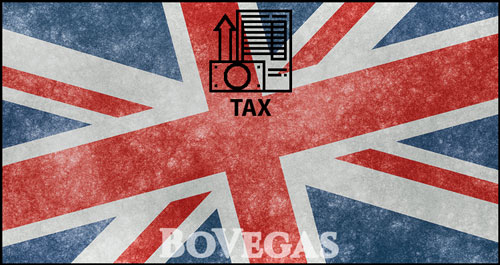
The toughest tax laws apply to land-based casinos, with a taxation of between 15% and 50% on the revenue (depending on the GGY of the premises). As for today, online casino operators are charged a fee of 15% on the profit; but from October 1, 2019, they will have to eke out a 21% duty on the revenue.
Lotteries and Bingo are the least taxable forms of gambling, with a tax of 12% on the turnover and 10% on the profit respectively.
Players: 0
Casinos: 19% corporate tax + 35% of the profits
Sports betting: 19% corporate tax + 23% of the revenue
As early as in 2016, the Czech Republic was welcoming gambling operators, with some acceptable taxes of up to 20% on all types of gambling activities. But on January 1, 2017, the authorities introduced a new, stricter tax system; one which obliges casinos to pay a 35% duty on the revenue and 19% corporate tax.
As far as betting on sports is concerned, the operators are charged a fee of 23% on the profits, along with 19% corporate tax.
Players: 0
Online/Land-based Casinos: 0 – 62.53 % of player loss/gross profit/net revenue (depends on the state)
Keno: 2.53 % of turnover; 1.75 – 29.4% player losses; up to 29.4% gross revenue
If the countries with the heaviest gambling taxation rates were aligned, Australia would be somewhere in the middle of the spectrum. The imposed taxes on land-based and online casinos vary depending on the state, but they don’t exceed 62.53% on the monthly player losses. In addition, all operators are bound by law to pay license fees.
Players: 0
Online Casinos: 20% duty of the GGR (gross gaming revenue)
Land-based Casinos: 45% of the GGR; 75% of the GGR provided that the GGR exceeds $612,000 (DKK 4 million)
Lotteries: 15-17,5% on the winnings that exceed $29.7 (€26)
Sports betting: 20% of the GGR
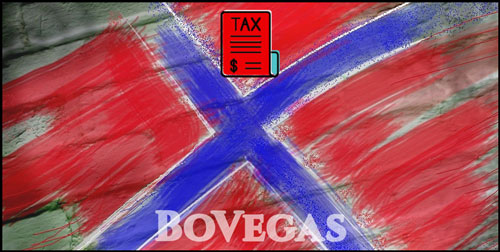
As for the lotteries, both online and land-based operators are charged fees of 15-17,5% on the winnings that exceed €26. Sport betting establishments have to pay a duty of 20% on the gross gambling revenue.
Winners: 0
Land-based casinos: 10-80% of the GGR
Sports betting and lotteries: 15% of the GGR (except National Lottery)
Despite being easily unnoticed on the European map, Luxembourg possesses about 10 land-based casinos, a great number of which are scattered along the borders with France, Germany, and Belgium. This country, which is literally squeezed between the first two, has fairly high taxes imposed on brick and mortar gambling venues, which range from 10% to 80% on the GGR. Taxes on sports betting and lotteries aren’t as heavy and amount to 15% of the revenue; while the National Lottery is not subject to any duty whatsoever.
Players: 0
Online/Land-based Casinos: 35 – 85%
Lotteries: 2 – 17.5%
Taxation in Austria bypasses gamblers, giving them a free hand for their gambling activities.
By contrast, the current tax legislation pertaining to games of chance doesn’t spare either online or land-based casinos. Gambling venues are required to pay as much as up to 85% levies on all stakes (minus winnings). Casinos that are subject to a tax rate of 35% get off pretty lightly.
The taxation on lotteries is less severe, amounting to between 2 and 17.5%. Taxes on Keno and sports betting are levied on either the turnover or player losses or gross revenue. Taxation in Australia leaves the players untouched.
Gambling is an indispensable source of income to Australia that generated about 8% of the total country’s revenue in 2015-2016.
Players: tax-free, except for several cases
Casinos: 10% of the GGR + 30% of the given out winnings
Lotteries: 10% of the GGR + 30% of the given out winnings
Totalizator: 9.5% of the GGR
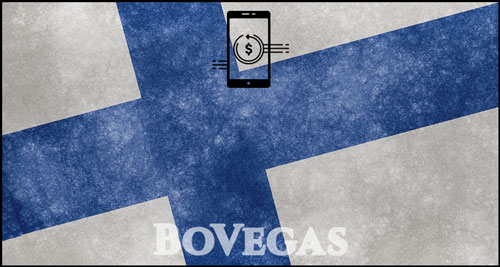
Citing to Vero.fi, casino and lottery operators are subject to a 10% tax on their Gross Gaming Revenue as well as they have to pay out 30% of the winnings given out to players.
When we were looking for the answer to the question “Are casino winnings taxable?” we again end up on Vero.fi:
The prize is taxable if:
Players: 5%
Land-based Casinos: 20-80% of the gross gaming revenue
Online casinos: 19% VAT tax
Sports betting, Horse racing: 5% of stakes (whether online or land-based)
Operators of slot machines outside casinos: from 12% to 20% of the GGR
Lotteries: 16.66% of stakes
With a 5% tax on gambling winnings, Germany is one of the countries which doesn’t consider gambling as a windfall.
Land-based casinos are taxed at a rate of 20-80% on the GGR, while online operators are subject to a 19% VAT tax. Sports betting and horse racing escaped strict taxation, with a fee of 5% charged on wagered stakes.
As far as lotteries are concerned, the tax rate is a devilish figure of 16.66% of the total stakes.
Casino Players: 12% of the winnings that exceed €1,500 ($1,710)
Land-based Casinos: up to 83.5% of the revenue
Sports and Horse race betting: social security contribution + percentage of the total amount of wagers
Lotteries: 69.1% of stakes (minus winnings) and VAT of 19.6%
While Monaco is widely regarded as tax heaven, France appears to be the primary executor of the devil’s tax orders. Taxation in France covers every segment of the people’s life, including even gifts given to the family members or relatives; not to mention gambling.
French players, who win over €1,500 ($1,710) at land-based casinos are subject to a duty of 12% on the winnings, while the bricks and mortar casinos themselves have to pay up to 83.5% of their revenues. Establishments that offer lottery tickets are obliged to withhold 69.1% of the stakes wagered (minus winnings) and VAT tax of 19.6% from their revenues.
Casino winners: 25%
International casino winners: 30%
Lottery winners: up to 62.5%
Casinos: 20% (vary depending on the state) of the GGR
Lotteries: yes
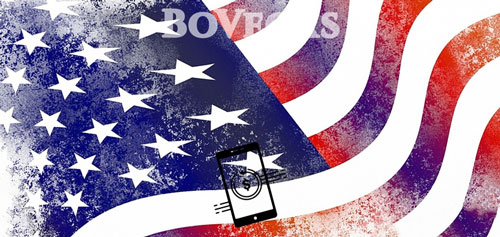
While it’s still obscure which city will take the lead in this competition, Las Vegas and the US itself lag behind Monte Carlo in terms of taxation on gambling winnings. All casino winnings in the United States are taxed at a rate of 25% for US residents, whereas International recreational players should pay a duty of 30% of the money won. Monte Carlo, in turn, doesn’t burden either its dwellers or foreign casino visitors with taxation on their winnings.
As for the lottery winnings, the tax system is a real thorn in the flesh. In addition to the 25% tax, US residents will have to pony up to 14.6% in federal taxes. And if a jackpot winner decides to withdraw their winnings in one lump sum, they are subject to an additional deduction of 38%. Otherwise, jackpots are paid out in 30 increments over 29 years.
Winners: declare winnings as income (up to 45%)
Land-based/Online casinos: 20% of GGR
Remote sports betting: 20%
The Spanish parliament has recently slashed taxes on numerous online games of chance, encouraging foreign operators to tap a new market. Since July 2018, the tax levied on remote casinos and bookmakers is a flat 20%, compared to the previous 25%. Taxation on brick and mortar casinos remained at a rate of 20%.
When it comes to the Spanish, their winnings aren’t subject to any fee. By contrast, the legislation obliges residents of Spain to declare their winnings as income; and the tax ranging between 19% and 45% is subsequently charged from the income.
Online/Land-based Casino Players: 0
International website casino players: yes
Lotteries Players: yes
Online/Land-based Casinos: 30.1% of the GGR
Tax legislation on gambling in the Netherlands is vague, as the only reliable source of information, the Netherlands Tax Authority website (belastingdienst.nl), doesn’t provide data in English, while the information in Dutch is fairly ambiguous. The most explicit data available on the website pertains to casino players, who, as the law states, aren’t subject to levies on their winnings; provided that they won money on domestic websites or B&M casinos. By contrast, the winnings gained at foreign online casinos are taxable.
As far as gambling operators are concerned, they are allegedly subject to a fee of 30.1% on their Gross Gaming Revenue.
For more accurate information, please contact the Dutch Tax and Customs Administration.
Winners: 0
Casinos: yes (allegedly 20% of the GGR)
When speaking about gambling taxes in Canada, there is no open-source information on that. The only reliable fact is that neither casino nor lottery winners are subject to duty on their winnings.
More information can be found on the Government of Canada website.

“I know that the spades are the swords of a soldier, I know that the clubs are weapons of war, I know that diamonds mean money for this art, But that’s not the shape of my heart…” We all know these lyrics from “Shape of My Heart,” the popular song by Sting. He uses very […]
Slot machines, locally known as pokies, are a huge hit in Australia. Slots are generally the type of games which are bound to succeed in gaining fans! The gameplay is simple, the minimum bet is very small, and the process is quite immersive. That is why these machines are so popular around the world. But […]
Do you want to experience the real taste of Asia and at the same time play your favorite games in the world’s best casinos? Then Macau is your must-go destination. And we’re going to tell you why now: A Few Words About Macau Macau was originally a Portuguese colony in China. The Portuguese legalized gambling […]
A slot machine is a casino game that features spinning reels. A player places a bet and spins the reels. The goal is to land a winning combination. The winning amount can be many times higher than the bet, depending on the combination.Related Posts Top 15 Books About Poker Psychology of the Roulette Player Royal […]
If you love gambling and have been to a land-based casino at least once, you may have thought about becoming a dealer. Playing the same game but from the opposite side, while communicating with other players, sounds like a dream job, right? A dealer is a straightforward job, and you will be the heart and […]
On Monday September 14, MGM announced that it plans to open its first smoke-free casino at the end of September, when Park MGM will finally reopen its venues to players and tourists. The resort comprises around 2,990 rooms and various restaurants, and it’s set to be reopened on September 30. The venue has been closed […]
Online gambling has undoubtedly taken a place of true supremacy over the casino industry during the pandemic. And the reason for that is quite clear: online casinos are more accessible, and you can always count on some encouragement from the casino administration to help you boost your game. However, this digital revolution has only been […]
The large selection of online gambling sites out there can make players somewhat puzzled, and give them a feeling of uncertainty about making the right choice of casino. Each online gambling venue offers its own conditions, games, and various bonuses, of course; but the most important thing is the reliability of the casino and the […]